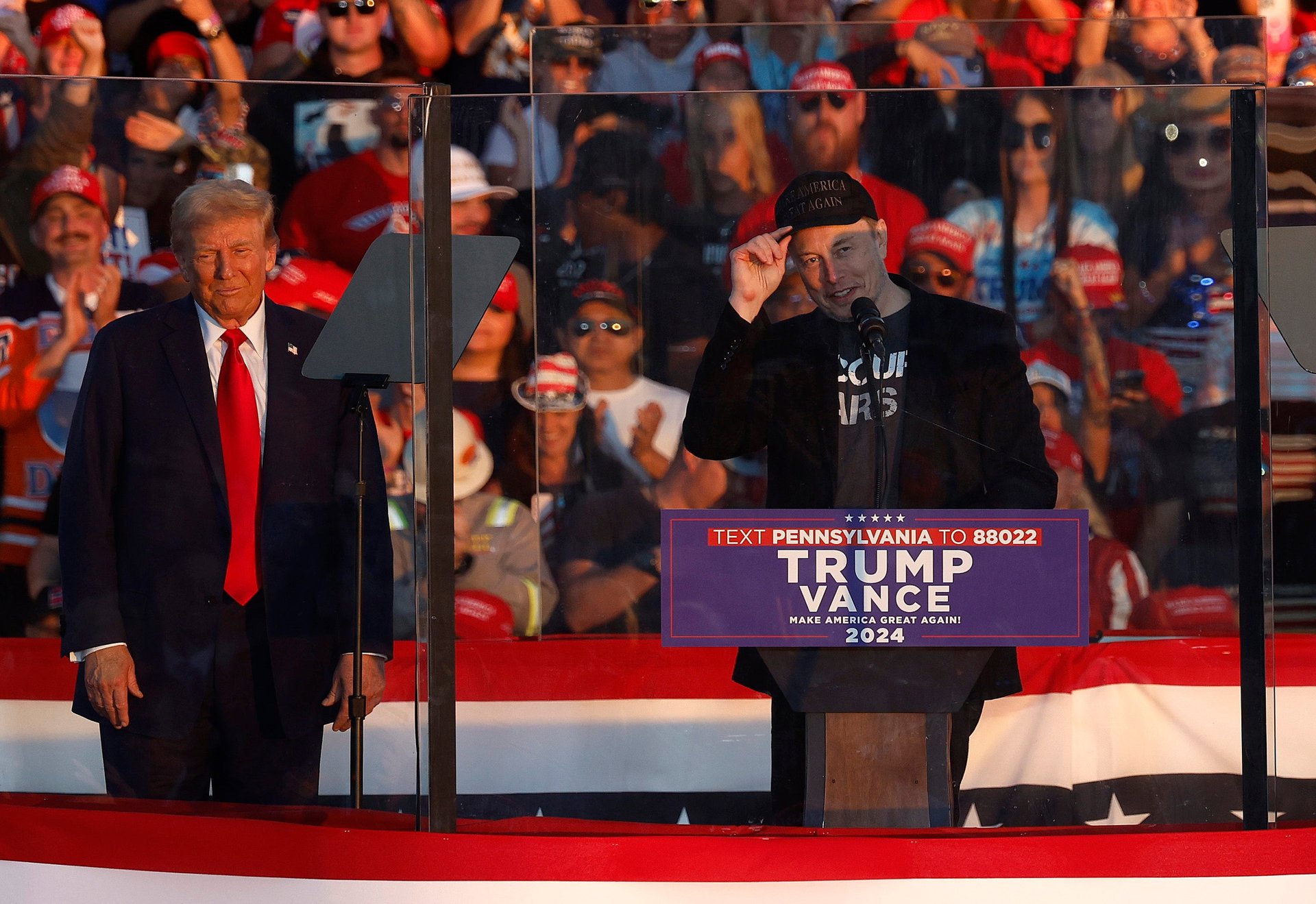Donald Trump called self-driving cars 'concerning' hours before Elon Musk's Tesla robotaxi event
Tesla's chief executive has emerged as a close political ally of the former president

Former President Donald Trump on Thursday called the idea of autonomous vehicles (AV) “concerning,” just hours before his close ally Elon Musk is set to show off Tesla’s robotaxi prototype.
Suggested Reading
“Do you like autonomous? Does anybody like an autonomous vehicle,” Trump asked the crowd at the Detroit Economic Club while pledging to stop Chinese self-driving vehicles from operating in the U.S. “Some people do, I don’t know; a little concerning to me,” he added.
Related Content
Trump has rarely commented on the technology, but has been known to be privately criticize AVs behind the scenes. In 2019, Axios reported that Trump had said self-driving cars “will never work,” and was distrustful, despite his Transportation Department’s enthusiasm.
It’s unclear what stance his potential future administration would take on the technology, but his latest comments come as Tesla’s (TSLA) robotaxi launch event is on the horizon. Musk — who has endorsed Trump, openly discussed a potential role in a Trump White House, and recently appeared alongside the former president at a rally — is hosting the “We, Robot” event in California late on Thursday night, with the goal of showing off Tesla’s AV capabilities.
Musk has pitched his vision for a robotaxi network as a “combination of Airbnb and Uber,” since owners can opt their cars into the service at their leisure. An eventual fleet could, according to some of the most bullish estimates, account for as much as 90% of Tesla’s value by 2029, as long as it can take off in the coming years.
Tesla, to an extent, is already playing catch-up to some domestic rivals who have been testing more advanced technology for years, such as Google’s Waymo (GOOGL). It’s also behind a number of Chinese competitors, like Toyota Motor Co.-backed Pony.ai (TM) and internet giant Baidu (BIDU), which operates AVs through its Apollo Go Service.
“The autonomous vehicles we’re going to stop from operating on American roads,” Trump said Thursday, referring to Chinese-owned companies testing their technology in the U.S.
Several Chinese self-driving car companies have been conducting road tests in the U.S. for a while, although many have started scaling back their operations in recent years as tensions grew between the U.S. and China. That includes major players like Baidu, Didi Chuxing, and some smaller startups, the South China Morning Post reported earlier this month.
The total distance driven by Chinese autonomous cars in AV-friendly California fell by almost 74% in the 12 months leading up to November 2023, the Post reported, citing state data. President Joe Biden’s Commerce Department has also said it would ban autonomous vehicle software from China starting in 2027.
Trump on Thursday also repeated a number of claims about the auto industry, including an oil lobby-backed criticism of recent federal rules on tailpipe emissions. He also falsely suggested that the widespread adoption of electric vehicles would “destroy” public roads and the electric grid, that gasoline-powered cars now produce “very little pollution,” and attacked hydrogen-powered vehicles.
The former president and Republican presidential nominee also took aim at the $7,500 federal tax credit for EV purchases, labeling it “tax breaks for rich people.” The industry is concerned that a potential Trump administration would scrap the tax credit, which would likely hurt sales at major automakers like General Motors (GM) and Hyundai Motor Co.
Musk, who has also launched a pro-Trump super political action committee, in July said getting rid of the tax credits “probably actually helps Tesla” in the long term because its rivals — who control much less of the market — would be hindered.”
